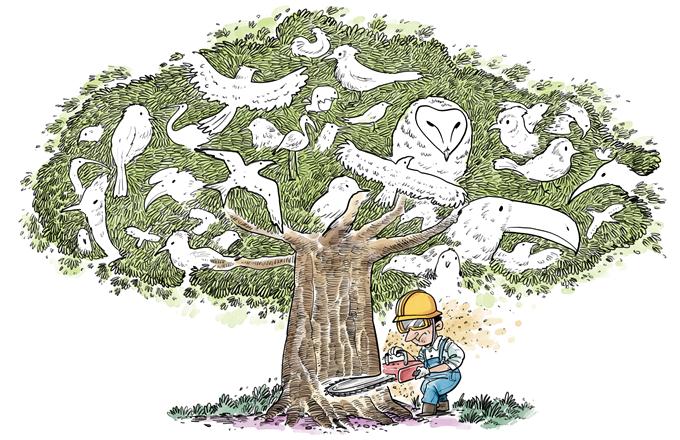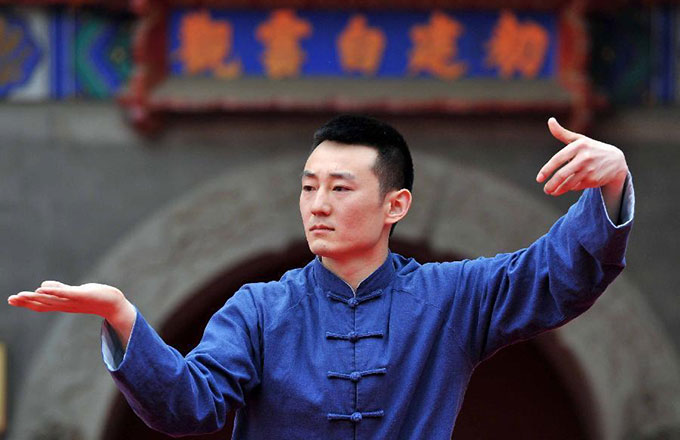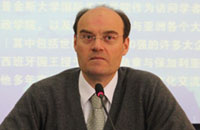New financing institutions' focus on cooperation
Competition is an integral part of modern economy, with various players vying with each other to grab market shares and become industrial leaders. But for major development financing institutions such as the Asian Development Bank and the Asian Infrastructure Investment Bank, the buzzword is cooperation, not competition.
At the 50th annual meeting of the ADB in Yokohama, Japan, last week which was attended by more than 5,500 delegates, I was impressed to see officials of both the ADB and AIIB consciously avoid the use of the word "competition" to define their relationship despite the repeated use of innuendoes by reporters.
Asked about whether the two banks will compete with each other in infrastructure financing in Asia, ADB President Takehiko Nakao and Yasuyuki Sawada, ADB's chief economist, both said the two banks do not see each other as rivals.
"We can complement each other. The financing needs are so large, so we don't need to regard the AIIB as a kind of a rival in that regard," Nakao told a news conference on Thursday, when the annual meeting of the ADB's board of governors began. Nakao also showed his openness to new economic ideas by saying the ADB is willing to participate in the China-led Belt and Road Initiative, which despite not being confined to supporting Asian development, will certainly help boost economic activities in the region.
In late April, AIIB President Jin Liqun thanked the World Bank and other development banks, including the ADB, saying their cooperation had ensured the smooth operation of the AIIB, which was formally established in early 2016. Jin said that in the year since the AIIB's establishment, 75 percent of the projects in which it has invested have been jointly implemented by the AIIB and other development financing institutions, and only 25 percent of those projects are being independently managed by the bank.
The complementary relationship of the ADB and AIIB began even before the latter was formally established. At a meeting between Nakao and Jin in May 2015, Nakao and Jin reportedly agreed to share expertise and engage in co-financing. A year later, they signed a memorandum of understanding to strengthen cooperation, including in co-financing, at the strategic and technical level.
Considering the differences between China and Japan on some geopolitical and historical issues, such a harmonious relationship between the Japan-led ADB and the China-initiated AIIB is especially commendable. It will be greatly beneficial for sustainable economic growth in Asia, a region that still suffers from unbalanced development especially in terms of infrastructure.
According to the ADB, Asia and the Pacific region will need more than $22.6 trillion for infrastructure construction through 2030, or $1.5 trillion per year, to maintain the growth momentum. The ADB approved loans and grants worth $17.5 billion last year, a record high. Still, the ADB's lending, together with funding from other banks, cannot meet the annual demand for infrastructure construction in the region.
A cooperative relationship between the two banks is beneficial to both. While the AIIB can learn from the ADB's expertise and benefit from its human resource exchanges, the ADB may find it easier to establish a foothold in regions beyond Asia by cooperating with the AIIB, because the AIIB has wider representation and its members are spread across a larger area of the globe.
Their cooperation, more importantly, heralds brighter prospects for the future development of Asia, a region that fell victim to a number of wars, conflicts and economic crises in the past century and still suffers from unbalanced development, with a large number of its people trapped in poverty.
The AIIB will infuse fresh blood into the Asian economies through its financing infrastructure networks, boosting regional economic growth and improving the livelihoods of the local people. The welcoming stance of the ADB toward the AIIB means the process of Asian infrastructure construction will become smoother.
The author is a senior writer with China Daily.

























